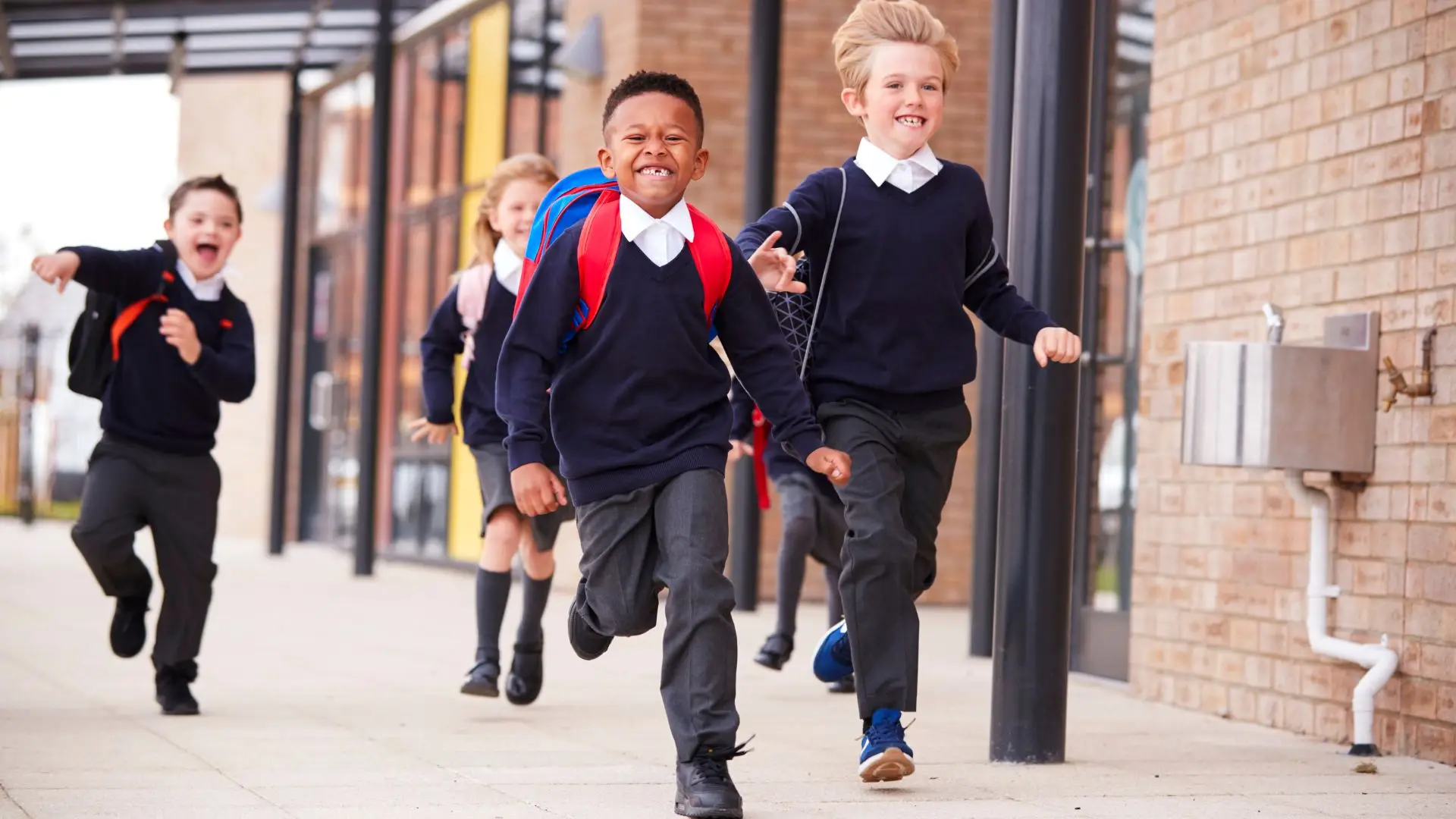What Are the 6 Principles of Safeguarding in Schools?
02 Sept, 20251-2 minutes
In this blog, you will learn:
- What a safeguarding policy is in schools.
- What the 6 key principles of safeguarding are and how schools can adhere to these principles.
- Where the latest education jobs are and how to apply for them.
The topic of safeguarding can sometimes feel like a minefield, but the good news is, we're here to help! In essence, safeguarding focuses on protecting individuals from harm, abuse and neglect. It is followed by the 6 principles of safeguarding which exist to guide individuals and organisations on how to recognise, prevent and respond to any safeguarding concerns.
The 6 principles of safeguarding were originally introduced by the Department of Health in 2011 but are now part of the Care Act 2014. These principles aim to provide a transparent and consistent framework for safeguarding individuals.
In this blog, we will delve into each of the six principles, discuss how schools can implement them, and explain the significance of a safeguarding policy in an educational setting.
What is a safeguarding policy in schools?
A safeguarding policy is a vital document which outlines a school's dedication to protecting children and young people from abuse, harm, neglect, and exploitation. The document should clearly outline the establishment's approach to safeguarding in schools. This includes their procedures for recognising, reporting, and addressing any safeguarding concerns.
The policy should cover areas such as online safety, child protection, staff conduct and health and safety. This will help ensure that all Teachers, Teaching Assistants, and other staff members clearly understand their roles in maintaining student safety. A safeguarding policy highlights the importance of creating a supportive school environment where every student feels safe and is encouraged to express any concerns they may have.
What are the 6 principles of safeguarding?
The 6 principles of safeguarding are:
- Empowerment.
- Prevention.
- Proportionality.
- Protection.
- Partnership.
- Accountability.
Empowerment
Empowerment is a key principle of safeguarding as it encourages individuals to make their own decisions and have control of their own lives. When individuals feel empowered, they might be more inclined to voice their concerns and engage in decisions which impact their safety and wellbeing. This is because they feel heard, seen and safe to express themselves.
Empowerment also helps to build confidence and resilience, potentially making individuals less likely to endure neglect or abuse. When individuals know they are respected and not alone, they are more inclined to stand up against harmful situations.
To foster empowerment in schools, Teachers can educate students about their rights and provide straightforward methods for reporting concerns. This could include drop-in sessions with a trusted member of staff for pupils to feel like their concerns will be taken seriously.
Prevention
Prevention is an important principle of safeguarding which focuses on addressing potential risks and taking action to stop harm before it occurs. It is far more effective to implement strategies to prevent abuse or neglect than to address the consequences after they happen.
To put prevention into practice, schools could run regular lessons on online safety and safeguarding to ensure students have the knowledge to recognise potential risks before any harm may occur.
Safeguarding issues can result in a child experiencing physical, emotional and psychological consequences which can have long-term effects on their mental health. To prevent these issues, it is essential to train staff, implement effective measures to reduce risks and raise awareness about abuse and neglect.
This not only lowers the risk of harm to children but also boosts school staff's confidence in their ability to protect them before any danger arises.
Proportionality
Proportionality is an important principle of safeguarding which means any action taken due to a safeguarding concern must be fair, balanced and align with the level of risk or harm faced by the individual.
Schools can show proportionality by listening carefully to a child's concern and taking appropriate action, making sure that they are not causing unnecessary stress or intrusion.
For example, if there is a concern about a child turning into school one day with no lunch, the action taken should not be overly restrictive, but supportive. In most cases, if the concern is low and the action taken is extreme, it can do more harm than good.
With that being said, if the concern is serious and a child is in immediate risk of danger, stronger and more proactive actions must be taken to ensure they are safeguarded.
Applying proportionality means safeguarding remains proactive but also avoids unnecessary interventions.
Protection
Protection is another important principle of safeguarding which focuses on keeping children safe from harm, abuse and neglect. Schools can enhance safety by establishing a clear safeguarding policy, providing thorough staff training, supervising playgrounds, implementing secure entry systems, and issuing visitor badges.
Protection involves recognising individuals at risk and taking appropriate actions to ensure their safety. This includes offering support and intervening when needed. This also involves recognising children who may require extra support due to disabilities, language barriers, or family issues. It is essential to customise safeguarding measures to address their unique needs.
Protection guarantees that every child is supported and not left to confront risks alone. It highlights the need to be proactive in recognising and reporting any concerns.
Partnership
The partnership principal emphasises the importance of working with other individuals to protect children from harm, abuse and neglect. Schools can adhere to this principle by putting in place clear communication systems with parents, carers, external agencies and local authorities. They could also hold regular safeguarding meetings and information sessions to make sure every child gets the right support.
Collaborating with others allows schools to develop a more effective strategy for preventing and addressing safeguarding concerns. This is because there are more people there to identify risks, respond in a timely manner and provide the necessary support at the right time.
If a Teacher raises a concern with the Designated Safeguarding Lead about a child being at risk or in danger, the school may collaborate with social services or the police to address the issue.
With more individuals working on a concern, better action is likely to take place because expertise, resources and information are shared, ensuring that the child receives the best possible protection and support.
Accountability
Accountability in safeguarding means that individuals must take responsibility for their actions and decisions when protecting children and responding to a safeguarding concern. It also ensures that safeguarding processes are clear and that any concerns are acted upon appropriately.
Schools can put accountability into practice by regularly reviewing their safeguarding procedures, keeping detailed records of all concerns and ensuring all staff know their role in keeping children safe.
Accountability builds trust and ensures that everyone involved can be trusted to follow the correct processes. For example, if a Teacher reports a safeguarding concern, the Designated Safeguarding Lead is responsible for documenting the issue, taking appropriate action and following correct procedures.
If this is not addressed, accountability measures such as inspections, safeguarding reviews or audits would show this failure. This ensures that all individuals involved in safeguarding understand that children's safety should always be prioritised and that they cannot overlook or dismiss any concerns.
SCG School Insights Report 2025
As specialists in education and SEND recruitment, we work closely with primary, secondary, and SEND schools throughout the UK and are mindful of the challenges that schools and teaching staff are currently facing.
In the School Insights Report 2025, we explore pupil experience and outcomes, key developments impacting the education sector, staffing and workforce trends, and the state of funding and resources in education. Read the SCG School Insights Report 2025 here.
Teaching jobs
If you’re searching for your next teaching job, why not take a look at the latest teaching vacancies, or simply upload your CV to be notified when a relevant position becomes available.
Recruit teaching staff
As a specialist education recruitment agency, we support mainstream and SEND schools with their temporary, permanent and temp-perm staffing needs.
We currently work with hundreds of schools and have exclusive access to some of the best Teachers and Teaching Assistants in the North West.
If you’re struggling to fill a teaching vacancy, why not get in touch with one of our team to see how we can help?
Primary schools - Jimmy Callagher
Secondary schools - Liam Jones
SEND schools - Jamie Heath
Meet Jamie Heath
Who is Spencer Clarke Group?
Established in 2017, we’re an award winning and progressive recruitment agency based in the heart of the North West. Our reputation is built on trust, expertise and an unwavering commitment to exceed expectations.
In 2024, we were named Recruitment Agency of the Year at the prestigious Recruiter Awards, an accolade we are extremely proud of.





